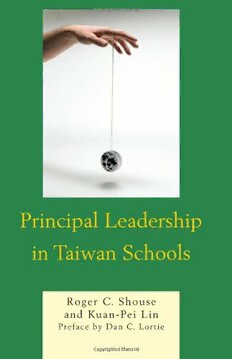
Principal Leadership in Taiwan Schools PDF
133 Pages·2010·0.393 MB·English
Most books are stored in the elastic cloud where traffic is expensive. For this reason, we have a limit on daily download.
Preview Principal Leadership in Taiwan Schools
Description:
During the past two decades, Taiwan's Ministry of Education has responded to globalization by restructuring school curricular, instructional, and decision making practices along western lines in an attempt to attain legitimacy on the world stage. As a result, Taiwanese principals, once kings within their schools, now must share power with other school stakeholders. In the process, these principals are held responsible for implementing reform measures that tend to damage trust and confidence in the system among local stakeholders because they cut against longstanding social and organizational norms. Principal Leadership in Taiwan Schools examines principals' adjustment to their new leadership role, highlighting the pervasive tensions between collegial forms of leadership with more authoritative, top-down models common to East Asian countries.Such dilemmas are becoming increasingly common, not only in Taiwan but in other nations including the U.S. Shouse and Lin examine them based on a review of Taiwan's past and recent history of school reform, principal interviews, and school observations. The authors' knowledge and experience as researchers and teachers in Taiwan's educational system allow them to provide insightful perspectives on how to balance this precarious shift of power.
See more
The list of books you might like
Most books are stored in the elastic cloud where traffic is expensive. For this reason, we have a limit on daily download.
